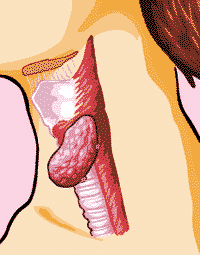| Home A B C D E F G H I J K L M N O P Q R S T U V W X Y Z |
|
Home |
Causes of Thyroid ProblemsWhat Causes Thyroid Dysfunction?The thyroid is a little gland with a big job. It keeps our metabolism working properly. When the thyroid goes awry, it can wreak havoc on the body. Here's some information on what can cause a thyroid to act up. 
I am sure you are aware that the thyroid is a little gland with a big job. It performs a specialized and important function in the body’s metabolism. It is indeed a delicate balance that keeps the thyroid functioning properly. Since hypothyroidism is a disease, or dysfunction, of the thyroid, I think it’s appropriate that we begin to understand some reasons why good thyroids can go bad, or, better phrased, a functioning thyroid becomes dysfunctional. There is really no clear-cut, textbook answer to this question because conditions, like people, are complex and are the result of many factors. Also, what can or does go awry for one person may not be what causes the same condition, in this case hypothyroidism, in another person. There’s more than one way to throw a thyroid ‘out of whack’. Clinically speaking, there are three situations that occur in the thyroid gland itself which cause a thyroid malfunction. These include:
Those are pretty basic and they just don’t feel complete. They just beg the question, so what causes these dysfunctions to occur? Of course, the answer to that question isn’t easy either. (Nothing ever is, is it?) First, is poor nutrition. Some studies have shown that people who develop thyroid problems, most notably hypothyroidism, suffer from iodine deficiencies. Since iodine is a trace mineral found in food that combines with tyrosine to make both T3 and T4, both of the hormones produced in the thyroid, a lack of it can lead to under-production of thyroid hormones. There is information out there that says that certain foods can interfere with the production of thyroid hormones. These include: soy, millet, or cassava. If a person eats too much of these, he or she can throw their thyroid off. Other studies find that deficiencies in vitamin A, magnesium and iron can also cause the thyroid to malfunction. The second factor is stress. When a person is under stress, certain hormones are released in the body, such as cortisol. Chronic stress can cause hormone disturbances and hormonal deficiencies which affect the endocrine system, and the thyroid. Of course, low thyroid function can mimic stress and other mental illnesses, most notably depression, so it’s hard to know which comes first. Therefore, the situation is a virtual catch-22 once you get into it. Third is genetics. Like most conditions, if a member of your family has struggled with the condition, then you will too. So if you have a parent, aunt, sibling, etc. with a thyroid dysfunction, then your thyroid may just malfunction too! The next factor is pregnancy, which also includes the postpartum period. Pregnancy is a time in a woman’s life when her whole body undergoes massive changes and suffers great stress. It’s hard to distinguish between the symptoms of thyroid malfunction and some of the more common discomforts of pregnancy such as weight gain and fatigue. Regardless, it is estimated that between 5-10% of all pregnancies will result in PPT (Postpartum Thyroiditis). Some say that Postpartum Depression may be related to decreased thyroid functioning after pregnancy. (It’s possible, but not our focus). The next change is also hormonal. It refers to menopause. When a woman goes through these hormonal changes, it can wreak havoc on her thyroid, especially if she is among the millions of people who have undetected problems with too much or too little thyroid hormone or if her numbers are normal-low or normal-high. Obviously, there are many contributing factors that predispose one to having a thyroid malfunction. Learning what those factors are will help you manage your thyroid whether it’s currently ‘out of whack’ or not. Article by Deanna Couras Goodson.
|
|||
|
|
|||
|
Glossary References Links Contact
|